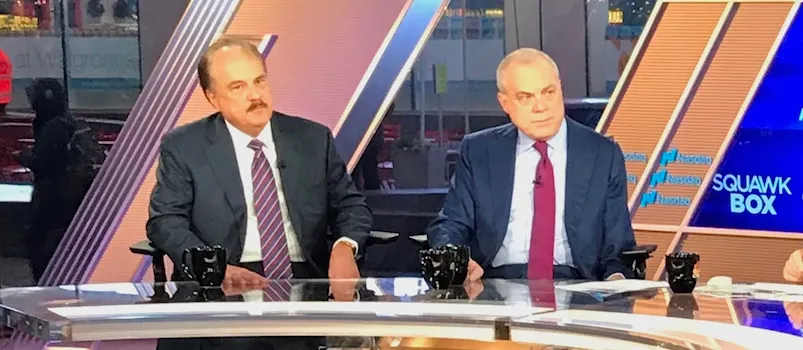BALTIMORE — Pharmacy can be key to thwarting opioid abuse, National Association of Chain Drug Stores president and chief executive officer Steve Anderson told a government summit on the opioid crisis.
“Advancing the health and safety of patients, families, communities and the nation remains the priority of pharmacies, and confronting the opioid abuse epidemic is essential to that goal,” Anderson said after participating in the Centers for Medicare & Medicaid Services summit at the invitation of CMS administrator Seema Verma.

Steve Anderson
NACDS shared with CMS a study conducted by the Johns Hopkins Center for Health Security, titled “Serving the Greater Good: Public Health and Community Pharmacy Partnerships.” The study points out that pharmacy already serves as a working partner on critical public health issues, including preventing opioid abuse, and that there are opportunities for public policy to further tap pharmacy-based actions and collaboration.
“When pharmacists are integrated into direct patient care in a team with other health professionals, there are positive effects on patient outcomes as well as reduced health care costs,” said Gigi Kwik Gronvall, senior associate at the center and the study’s corresponding author. “What’s encouraging, though, is that more can be done to ensure pharmacy professionals practice at the ‘top of their license’ — the peak of what they are capable and licensed to do to support public health.”
NACDS also presented to the summit new public policy recommendations that it announced recently, including legislating a seven-day supply limit for initial opioid prescriptions for acute pain; mandating that all prescriptions be issued electronically, with limited exceptions; creating a national prescription drug monitoring program through collaboration; and offering pharmacy patients manufacturer-funded mail-back envelopes for unused opioid drugs.
“NACDS’ recommendations and commitment to ongoing collaboration on this pressing issue are rooted in the fact that — every day — pharmacists face a moment of truth,” Anderson said. “When presented with an opioid prescription, a pharmacist must make decisions as a provider of patient care, and as part of the drug abuse solution. We are dedicated to working for ever-enhanced approaches, and further collaboration, for the good of our pharmacy team members and for all whom they serve.”
NACDS’ recommendations build on existing pharmacy and collaborative initiatives including bolstering compliance and security programs, advancing electronic prescribing, fostering drug disposal access and education, boosting naloxone accessibility, and stopping illegal online drug-sellers and rogue clinics.
“We shared our perspective that there are ample opportunities for CMS to help advance the public policy solutions for which we are advocating, and that there also are ample opportunities for all of the stakeholders,” Anderson commented. “NACDS remains completely committed to sustaining and advancing an aggressive, informed and collaborative approach to this highly complex societal issue, and we appreciate the opportunity to participate in this important summit.”
NACDS also endorsed bipartisan legislation introduced by Rep. Brian Fitzpatrick (R., Pa.) that would improve the interoperability of state prescription drug monitoring programs (PDMPs): the Monitoring and Obtaining Needed Information to Track Opioids Responsibly (Monitor) Act (H.R. 4236).
A PDMP, a technological approach to tracking controlled substance prescriptions, is a critical tool to help identify individuals who may be “doctor shopping,” or seeking to gain access to more opioids by visiting multiple prescribers who could be unaware of other prescriptions that have been obtained and filled.
“This bipartisan legislation provides the pathway to efficiency and effectiveness in the use of grant funds tied to prescription drug monitoring programs,” said Fitzpatrick. “Our nation’s drug epidemic is a complicated issue, and our response must be multifaceted; that means reducing unnecessary dispensing of prescriptions by tracking and reporting information that allows physicians, pharmacists and other health professionals to make informed clinical decisions and identify unseemly prescribing trends.”
Anderson commented, “Pharmacists serve patients and their communities on the front lines of health care delivery, and based on their experiences it is more and more clear that a more unified approach to a PDMP will provide more complete and useful information to prescribers and dispensers alike. That will increase the potential for a PDMP to be helpful in assuring that controlled substances make their way into the right hands only.”






